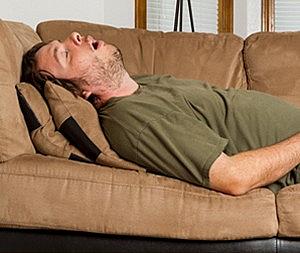Vetting good sleep in Philadelphia
Investigators at the University of Pennsylvania are studying what is takes to get a good night's sleep in Philadelphia.

Investigators at the University of Pennsylvania are studying what is takes to get a good night's sleep in Philadelphia.
Your mom — and conventional wisdom — might tell you that a dark room, calm and quiet are all requirements for a healthy rest. But moms and conventional wisdom are sometimes wrong, so Michael Grandner and his team in the department of psychiatry are studying how and why people sleep in the real world.
"We have work and home demands and environmental noise and other things that we can't always control," Grandner said.
"Maybe, it's the case that people are very resilient to certain things in their environment and more sensitive to others," Grandner said. "We don't have to recommend that people have a perfect bedroom."
The researchers have gathered information on Philadelphia neighborhoods including data on poverty rates, crime statistics, traffic and noise for the study known as SHADES: Sleep and Healthy Activity, Diet, Environment and Socialization.
Investigators are also asking residents from across the city to share information on their sleep habits and habitats.
Study participant Holly Barilla, 29, lives across from a noisy bar in the Art Museum district, but she's also an active athlete and says most nights she sleeps just fine.
"You know I really never gave it a thought until I was going through some of these questions: 'Do you sleep alone? Do you sleep with a pet? Are there kids in your house? Is it really dark in the room, is it really light in the room?'" Barilla said.
The study is just beginning, but the researchers plan to map their findings. Grandner says eventually he may be able to say which Philly neighborhoods offer the soundest sleep.
In the same way that a healthy diet is a pillar of health, Grandner says science is learning that that sleep also supports well-being.
"For example, we know that people who sleep less than six hours a night, on average, are more likely to develop heart disease, diabetes, obesity," he said. "They are more likely to have chronic inflammation. They may be more likely to have cognitive and performance problems, too."

